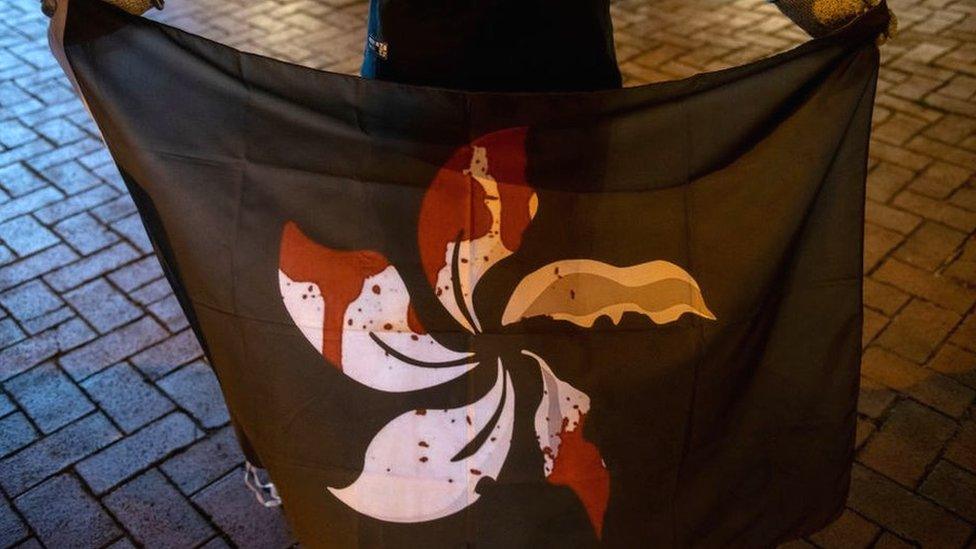Hong Kong: China approves 'patriotic' plan to control elections
- Published

Critics say the electoral reforms will effectively wipe out any remaining opposition when enacted
China's legislature has approved a resolution to overhaul Hong Kong's electoral system - its latest move to tighten control over the city.
The "patriots governing Hong Kong" resolution was passed at the National People's Congress (NPC) on Thursday.
It will reduce democratic representation and allow a pro-Beijing panel to vet and elect candidates.
The former British colony was handed back to China in 1997 under a model called "one country, two systems".
Under the deal, which gave the territory freedoms not available in mainland China, Hong Kong also had its own mini-constitution and an elected parliament.
The latest Chinese move follows a series of measures that have tightened Beijing's grip on Hong Kong, including the passing of a national security law and a crackdown on activists and opposition politicians.
Detailed legislation will now be drafted and could be enacted in Hong Kong within the next few months.
The UK says it will "hollow out the space for democratic debate" in Hong Kong.
Other critics say they will effectively wipe out any remaining opposition.


Almost 24 years after China took back control of Hong Kong from Britain, this was the moment it remade the free-wheeling, sometimes unruly territory's political system in its own image. The symbolism couldn't have been starker. Seated in the Great Hall of the People, 2,895 delegates voted in favour of the changes, none against. Whether the one abstention was a miscue on the electronic voting buttons, or a lone act of defiance, we'll never know.
There have been other milestones in recent years at which observers have pronounced the death of Hong Kong. The national security law, for example, has all but wiped out the ability to express dissent on the streets.
Once again, China is arguing that this reform - with its political loyalty test for candidates - is necessary to ensure stability. But critics will argue it abolishes another fundamental underpinning of the city's special freedoms - the ability to channel dissent through the political process itself.
The pro-democracy protests, although sometimes violent, were accompanied by mass popular support with as many as two million taking peacefully to the streets. In late 2019, the democrats won a landslide in Hong Kong's local elections, the city's only truly democratic ballot. That may have spooked Beijing more than barricades and petrol bombs. But is its victory now complete? "It is very sad," the former Democratic Party chairperson Emily Lau told me. "But I insist this doesn't mean the game is over for Hong Kong because the fight will go on."

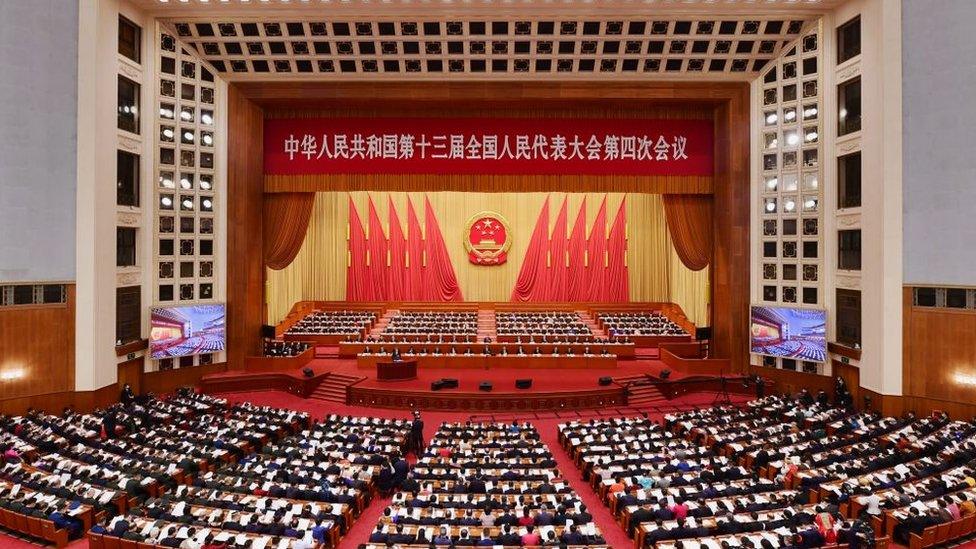
Thousands of lawmakers gathered as the annual NPC meeting began on Friday in Beijing
What does this mean for Hong Kong?
Hong Kong's parliament - or Legislative Council (LegCo) - helps to make Hong Kong's laws.
It is made up of 70 seats - but only about half are directly voted for by the public. In recent years, some of the seats have been filled by pro-democracy figures.
The other half has mostly been filled by smaller groups representing special interests such as business, banking and trade, sectors which are historically pro-Beijing.
The proposed new law will give Hong Kong's heavily pro-Beijing electoral vetting committee the power to vet all LegCo candidates and elect many of its members.
Hong Kong's leader Carrie Lam says she and Hong Kong's government "firmly support" the move.
What has Hong Kong's reaction been like?
"What they're really referring to [when they say 'patriot'] is that they will pick the people that they like, someone who is one of them," one resident told BBC Chinese.
"Basically, it's a step backwards, becoming more and more like the mainland," he said.
But another resident, identified as Ms Ho, said she supported the law.
"Hong Kong has already returned [to China]. So under this situation, the Chinese government's law should be the framework for our [patriot law]," she said.
What about international reaction?
UK Foreign Secretary Dominic Raab said the dilution of elections in Hong Kong would further undermine trust in China.
However, the Chinese embassy in London's chargé d'affaires Yang Xiaoguang told the BBC that the UK and China had a "different definition" of democracy.
Asked about possible UK sanctions against Chinese individuals over Hong Kong and other issues, Mr Yang said China would "safeguard our interests at any cost".
Earlier, the US condemned China's "continuing assault on democratic institutions in Hong Kong".
What's the context to all this?
Hong Kong was handed back to China from British control in 1997, but under a unique agreement - a mini-constitution called the Basic Law and a so-called "one country, two systems" principle.
This is supposed to protect certain freedoms for Hong Kong: freedom of assembly and speech, an independent judiciary and some democratic rights - freedoms that no other part of mainland China has.
But fears that this model was being eroded led to huge pro-democracy protests in 2019.
Some protests turned violent and last year, the NPC passed a controversial national security law, which effectively reduces Hong Kong's autonomy and made it easier to punish demonstrators.
Beijing said the law would target "sedition" and bring stability.
Since the law has been enacted in June, around 100 people have been arrested, including China critic and media tycoon Jimmy Lai, who was denied bail and is in detention awaiting trial.
The HK pro-democracy protesters who face a tough decision over continuing their fight or fleeing to the UK
Related topics
- Published5 March 2021
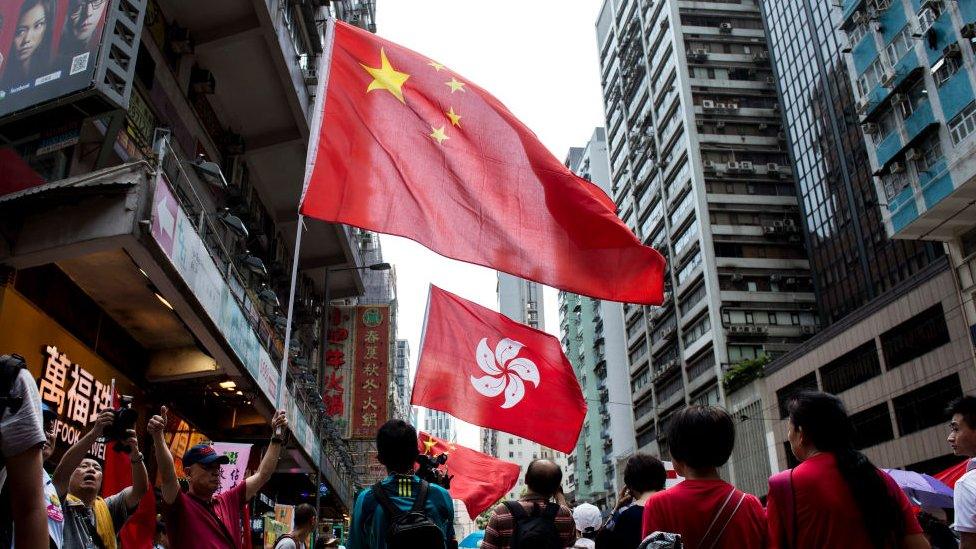
- Published5 March 2021
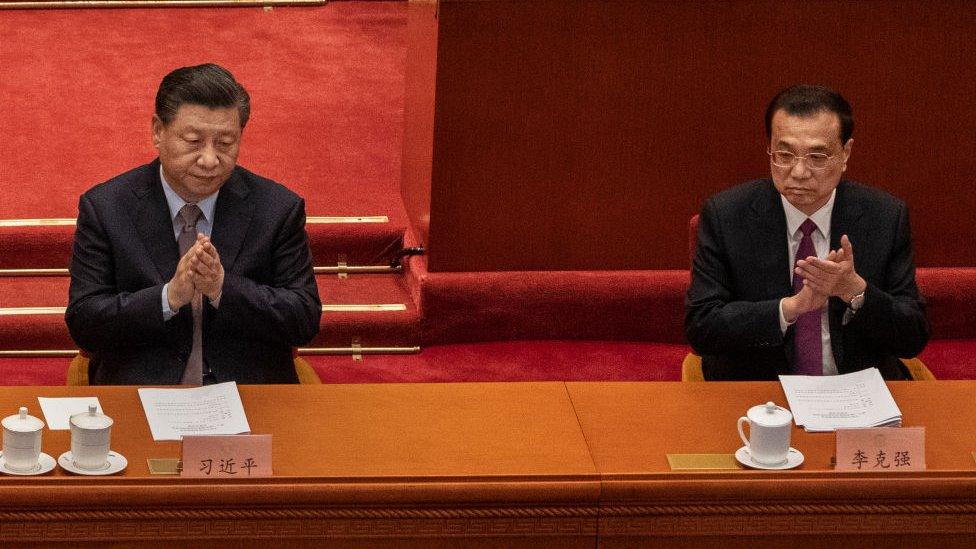
- Published26 October 2020
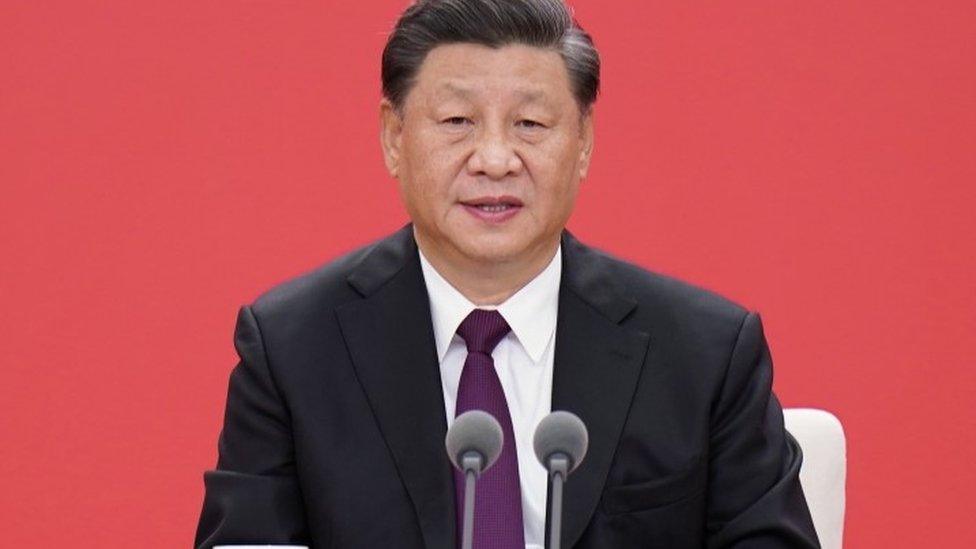
- Published22 May 2020
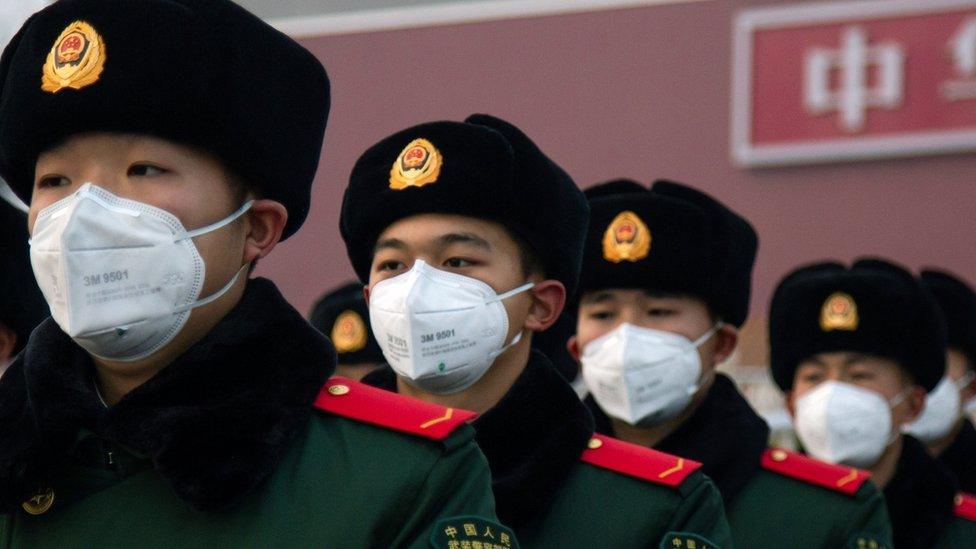
- Published11 March 2018
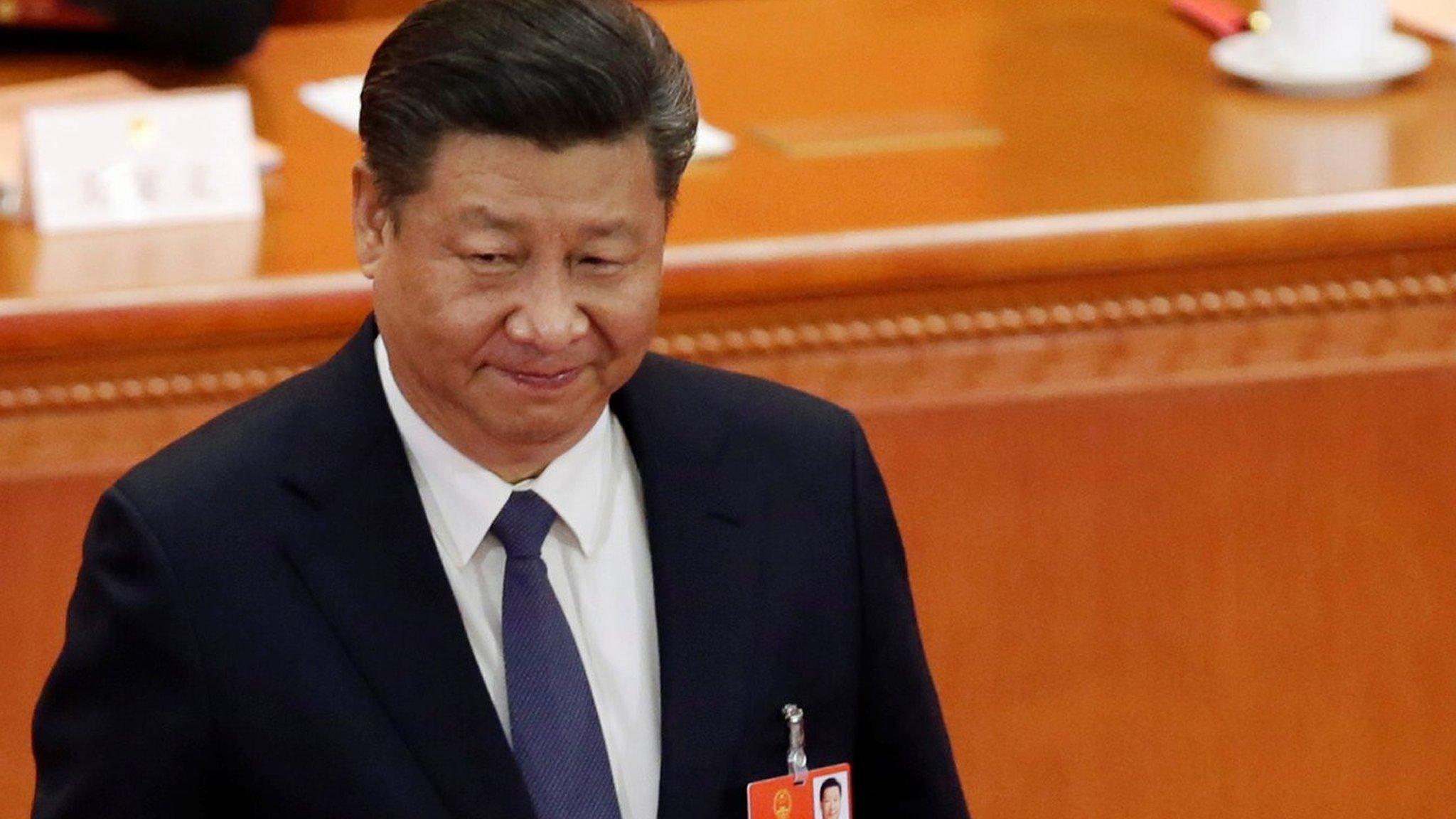
- Published1 March 2021
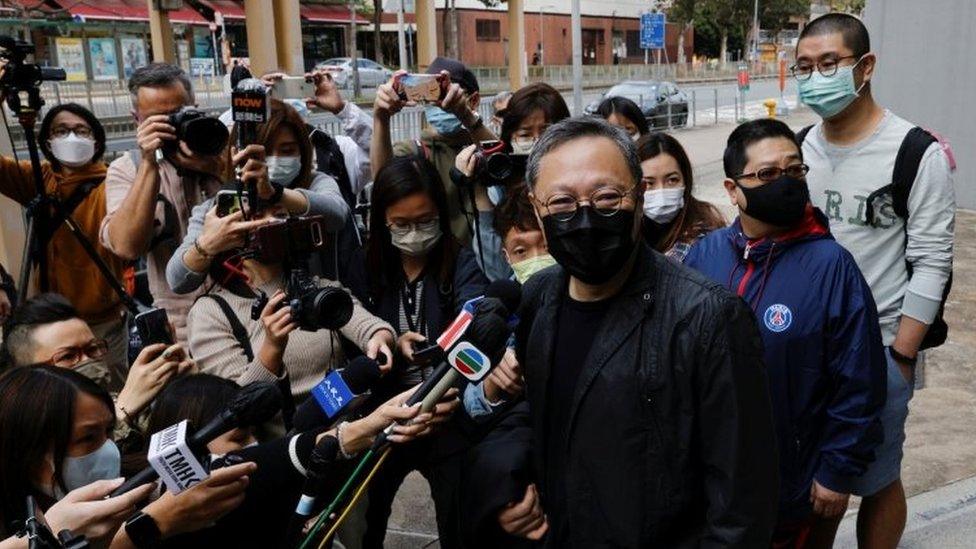
- Published19 March 2024
